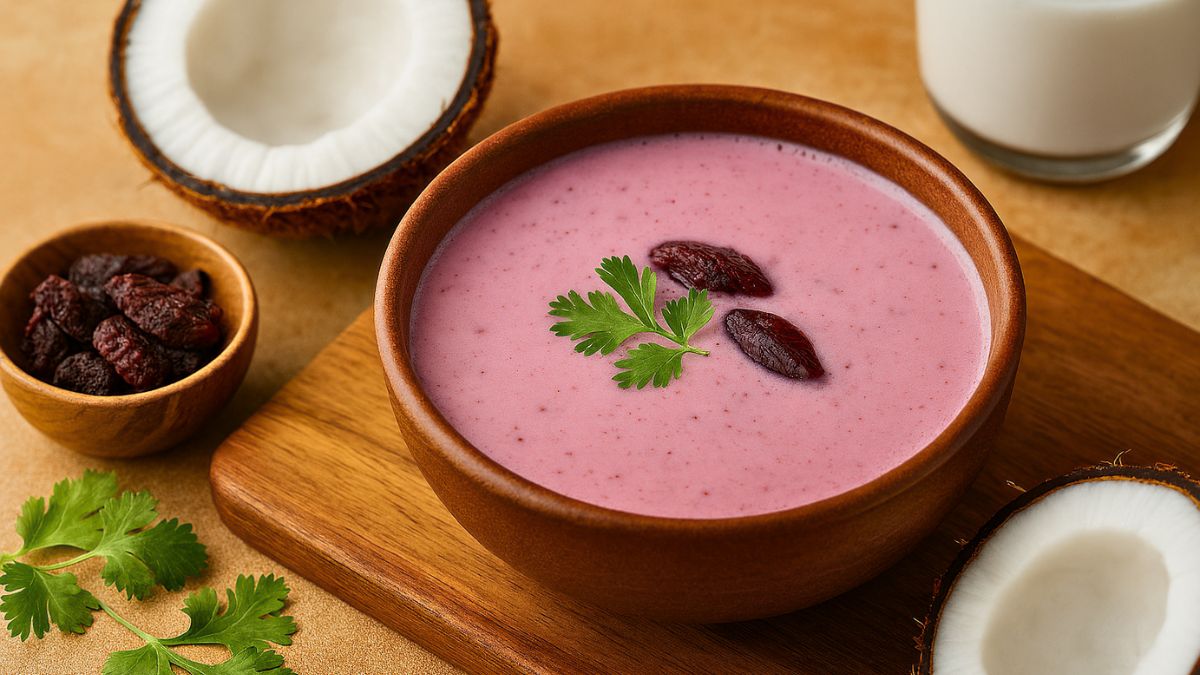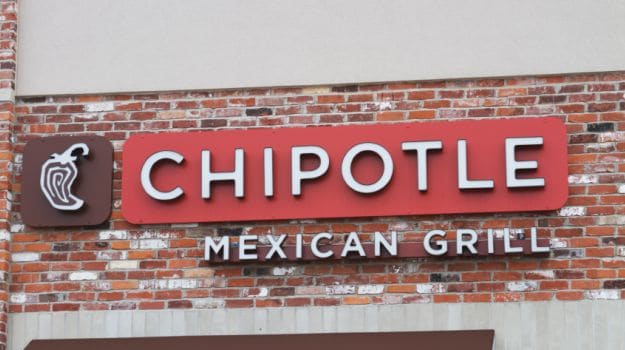Not many business success stories rival Chipotle Mexican Grill’s.From its start in 1993 as a burrito stand in Denver opened by a young Culinary Institute of America-trained chef who borrowed money from his parents, Chipotle now has more than 2,000 locations. Its stock nearly doubled over the past five years, and in August the company reached a market value of $23 billion.Chipotle emphasizes fresh, locally sourced ingredients. It was the first major chain to reject genetically modified food. Chipotle has embodied the notion of doing well by doing good. So it may not be too surprising that its fall from grace has been swift and severe.
Since July, when five customers became ill with the E. coli bacterium after eating at a Chipotle restaurant in Seattle — the first food-borne illness connected to the chain since 2009 — Chipotle has been confronted by a rash of outbreaks. At least six incidents have occurred over the past six months.“I’ve been involved in every food-borne illness outbreak, small and large, since 1993,” said Bill Marler, a Seattle-based lawyer who specializes in representing victims of food-borne illnesses and has filed several recent cases against Chipotle. “I can’t think of any chain, restaurant or food manufacturer who’s ever reported that many outbreaks in just six months. Underlying that has to be a lack of controls.”Federal authorities appear to be investigating whether that’s the case. Last week, Chipotle disclosed it had received a grand jury subpoena related to an outbreak in Simi Valley, California, indicating that the Justice Department and Food and Drug Administration are pursuing a possible criminal case. Under the Food, Drug and Cosmetic Act, there is broad criminal liability for food “prepared, packed or held under insanitary conditions whereby it may have become contaminated with filth, or whereby it may have been rendered injurious to health.”With each revelation, customers and investors have fled. Chipotle said same-store sales dropped a greater-than-expected 14.6 percent in the last quarter, and analysts have been scrambling to downgrade their ratings. On Tuesday, Chipotle shares dipped below $400 and were down 47 percent from the August high. The percentage decline in Chipotle shares rivals that of Jack in the Box, the hamburger chain, after it was implicated in 1993 in an E. coli outbreak that sickened more than 700 people, killed four children and left 178 victims permanently impaired.Two of the incidents, the one in Simi Valley in August that sickened 234 people, and another in Boston in December, which felled at least 136 customers, were linked to a norovirus, a highly contagious virus that causes gastroenteritis. It is spread through contact with an infected person, a surface bearing the virus, or by contaminated food.Chipotle has said both outbreaks were caused by sick employees who ignored strict policies prohibiting them from coming to work and, without elaborating, said that disciplinary measures were meted out to those responsible.In August, 64 people were treated for salmonella after eating at a Chipotle in Minnesota. Fresh tomatoes were identified as the culprit.Most worrisome have been outbreaks involving two strains of E. coli, an intestinal bacteria that can cause severe intestinal cramps, diarrhea and fever. The first, in October, sickened 53 people in multiple states, with a majority of victims in Oregon and Washington. A separate E. coli strain was identified in November, after five people became sick in Kansas, North Dakota and Oklahoma within a week of eating at Chipotle. No cause has been pinpointed, and in many such cases no cause is ever found. An investigation by the federal Centers for Disease Control and Prevention continues, and possible victims have been asked to come forward.Incidents of food-borne illnesses are hardly unusual: The CDC estimates that 1 in 6 Americans gets sick every year from food or drink, most of it consumed at home. Few such incidents draw national media attention. Even with a prominent chain like Chipotle, which has made healthful eating an integral part of its brand appeal, a single outbreak wouldn’t have drawn much scrutiny. But the spate of incidents is impossible to ignore.Plenty of critics have faulted Chipotle’s handling of the crisis — from not publicly disclosing the first outbreaks in Seattle right after they occurred to not moving faster to apologize and take responsibility. Marler said that in its enthusiasm for trendy, buzz-inspiring concepts — like no ingredients containing genetically modified organisms, known as GMOs — the chain may have lost its focus on basic principles of food safety, like making its employees wash their hands. He said he’d like to see Chipotle hire a high-level executive whose sole responsibility would be food safety.Chris Arnold, Chipotle’s director of public relations, told me this week: “If there’s a silver lining in this, it is that by not knowing for sure what the cause is, it’s prompted us to look at every ingredient we use with an eye to improving our practices.“We did a really comprehensive review of food safety practices from farm to restaurants. From that assessment we developed a food safety plan which we hope will establish Chipotle as a leader in food safety.”Chipotle hired noted food-safety specialist Mansour Samadpour, chief executive of IEH Laboratories and Consulting Group, who said Chipotle had adopted all of his recommendations, which should bring the risk of food contamination to “a level of near zero.” Among the steps Chipotle has taken are washing and cutting organic lettuce before shipping it in sealed plastic containers; blanching onions, avocados and jalapeños in boiling water; shipping raw chicken and steak in oversize bags to minimize handling; and shredding cheeses in centralized locations to minimize the chance of cross-contamination from other ingredients in restaurants. Arnold of Chipotle and Marler dismissed the idea that Chipotle was inherently more susceptible to food-borne illness than other restaurants because of its emphasis on locally grown, fresh ingredients.“We may be a little more vulnerable than many fast-food chains, because they don’t do much cooking in their restaurants,” Arnold said. “But we’re no more vulnerable than innumerable restaurants in every city in the country that deal with fresh ingredients.”Marler said: “I think the Chipotle business model is a good one,” and added: “There’s nothing incompatible about being local, organic and fresh and also safe. I just think they haven’t yet figured out how to embrace food safety with the same zeal they’ve shown for the other things they’re striving for.”The criminal investigation may generate more bad publicity for Chipotle, but is unlikely to pose a financial threat to the company. After years of scant attention, the Justice Department has been bringing more food safety criminal cases, but the highest fine — imposed last year on ConAgra Foods in a salmonella case linked to Peter Pan peanut butter — was just $11.2 million.And other companies, notably Jack in the Box, ultimately recovered their reputations for safety as well as their profit margins. Jack in the Box shares dipped below $2 in 1995 at the height of its E. coli crisis, but after revising its safety standards and sharing its protocols with the fast-food industry — pretty much the same approach Chipotle has embraced — Jack in the Box emerged as a food industry safety leader. Its stock more than doubled within two years. (This week it was trading at more than $73.)Chipotle shares have jumped nearly 14 percent over the past two days after company executives gave an upbeat presentation to investors, bankers and analysts at the ICR investor conference in Orlando, Florida, where they predicted the brand would regain its luster and reiterated an aggressive expansion and growth plan.Still, Chipotle’s success and brand image may have made it uniquely vulnerable to safety issues, and the company can hardly risk another incident. While none of the food safety issues “are unique to us, we recognize that we’ve become a very high-profile and high-visibility company,” Arnold said. “When bad things happen to us, that becomes a compelling story.”
© 2016 New York Times News Service
Since July, when five customers became ill with the E. coli bacterium after eating at a Chipotle restaurant in Seattle — the first food-borne illness connected to the chain since 2009 — Chipotle has been confronted by a rash of outbreaks. At least six incidents have occurred over the past six months.“I’ve been involved in every food-borne illness outbreak, small and large, since 1993,” said Bill Marler, a Seattle-based lawyer who specializes in representing victims of food-borne illnesses and has filed several recent cases against Chipotle. “I can’t think of any chain, restaurant or food manufacturer who’s ever reported that many outbreaks in just six months. Underlying that has to be a lack of controls.”Federal authorities appear to be investigating whether that’s the case. Last week, Chipotle disclosed it had received a grand jury subpoena related to an outbreak in Simi Valley, California, indicating that the Justice Department and Food and Drug Administration are pursuing a possible criminal case. Under the Food, Drug and Cosmetic Act, there is broad criminal liability for food “prepared, packed or held under insanitary conditions whereby it may have become contaminated with filth, or whereby it may have been rendered injurious to health.”With each revelation, customers and investors have fled. Chipotle said same-store sales dropped a greater-than-expected 14.6 percent in the last quarter, and analysts have been scrambling to downgrade their ratings. On Tuesday, Chipotle shares dipped below $400 and were down 47 percent from the August high. The percentage decline in Chipotle shares rivals that of Jack in the Box, the hamburger chain, after it was implicated in 1993 in an E. coli outbreak that sickened more than 700 people, killed four children and left 178 victims permanently impaired.Two of the incidents, the one in Simi Valley in August that sickened 234 people, and another in Boston in December, which felled at least 136 customers, were linked to a norovirus, a highly contagious virus that causes gastroenteritis. It is spread through contact with an infected person, a surface bearing the virus, or by contaminated food.Chipotle has said both outbreaks were caused by sick employees who ignored strict policies prohibiting them from coming to work and, without elaborating, said that disciplinary measures were meted out to those responsible.In August, 64 people were treated for salmonella after eating at a Chipotle in Minnesota. Fresh tomatoes were identified as the culprit.Most worrisome have been outbreaks involving two strains of E. coli, an intestinal bacteria that can cause severe intestinal cramps, diarrhea and fever. The first, in October, sickened 53 people in multiple states, with a majority of victims in Oregon and Washington. A separate E. coli strain was identified in November, after five people became sick in Kansas, North Dakota and Oklahoma within a week of eating at Chipotle. No cause has been pinpointed, and in many such cases no cause is ever found. An investigation by the federal Centers for Disease Control and Prevention continues, and possible victims have been asked to come forward.Incidents of food-borne illnesses are hardly unusual: The CDC estimates that 1 in 6 Americans gets sick every year from food or drink, most of it consumed at home. Few such incidents draw national media attention. Even with a prominent chain like Chipotle, which has made healthful eating an integral part of its brand appeal, a single outbreak wouldn’t have drawn much scrutiny. But the spate of incidents is impossible to ignore.Plenty of critics have faulted Chipotle’s handling of the crisis — from not publicly disclosing the first outbreaks in Seattle right after they occurred to not moving faster to apologize and take responsibility. Marler said that in its enthusiasm for trendy, buzz-inspiring concepts — like no ingredients containing genetically modified organisms, known as GMOs — the chain may have lost its focus on basic principles of food safety, like making its employees wash their hands. He said he’d like to see Chipotle hire a high-level executive whose sole responsibility would be food safety.Chris Arnold, Chipotle’s director of public relations, told me this week: “If there’s a silver lining in this, it is that by not knowing for sure what the cause is, it’s prompted us to look at every ingredient we use with an eye to improving our practices.“We did a really comprehensive review of food safety practices from farm to restaurants. From that assessment we developed a food safety plan which we hope will establish Chipotle as a leader in food safety.”Chipotle hired noted food-safety specialist Mansour Samadpour, chief executive of IEH Laboratories and Consulting Group, who said Chipotle had adopted all of his recommendations, which should bring the risk of food contamination to “a level of near zero.” Among the steps Chipotle has taken are washing and cutting organic lettuce before shipping it in sealed plastic containers; blanching onions, avocados and jalapeños in boiling water; shipping raw chicken and steak in oversize bags to minimize handling; and shredding cheeses in centralized locations to minimize the chance of cross-contamination from other ingredients in restaurants. Arnold of Chipotle and Marler dismissed the idea that Chipotle was inherently more susceptible to food-borne illness than other restaurants because of its emphasis on locally grown, fresh ingredients.“We may be a little more vulnerable than many fast-food chains, because they don’t do much cooking in their restaurants,” Arnold said. “But we’re no more vulnerable than innumerable restaurants in every city in the country that deal with fresh ingredients.”Marler said: “I think the Chipotle business model is a good one,” and added: “There’s nothing incompatible about being local, organic and fresh and also safe. I just think they haven’t yet figured out how to embrace food safety with the same zeal they’ve shown for the other things they’re striving for.”The criminal investigation may generate more bad publicity for Chipotle, but is unlikely to pose a financial threat to the company. After years of scant attention, the Justice Department has been bringing more food safety criminal cases, but the highest fine — imposed last year on ConAgra Foods in a salmonella case linked to Peter Pan peanut butter — was just $11.2 million.And other companies, notably Jack in the Box, ultimately recovered their reputations for safety as well as their profit margins. Jack in the Box shares dipped below $2 in 1995 at the height of its E. coli crisis, but after revising its safety standards and sharing its protocols with the fast-food industry — pretty much the same approach Chipotle has embraced — Jack in the Box emerged as a food industry safety leader. Its stock more than doubled within two years. (This week it was trading at more than $73.)Chipotle shares have jumped nearly 14 percent over the past two days after company executives gave an upbeat presentation to investors, bankers and analysts at the ICR investor conference in Orlando, Florida, where they predicted the brand would regain its luster and reiterated an aggressive expansion and growth plan.Still, Chipotle’s success and brand image may have made it uniquely vulnerable to safety issues, and the company can hardly risk another incident. While none of the food safety issues “are unique to us, we recognize that we’ve become a very high-profile and high-visibility company,” Arnold said. “When bad things happen to us, that becomes a compelling story.”
© 2016 New York Times News Service
Advertisement







